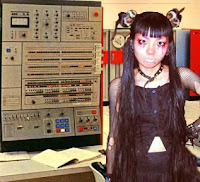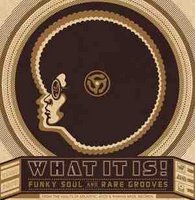
Get Tech!
Okay all you talented finger-painters, it's time to do your math homework. I know you hate it, because you're an artist. You dream poetry and imagine the apocalypse and it's your vast, unlimited creativity that will turn you into world famous filmmakers. Who cares about math? I'm here to tell you that it's you who should care.
Now, I don't mean math homework exactly; in fact, by math I mean all the "tech" stuff that we creative writers and dreamers try to avoid in filmmaking: the geeky nuts and bolts of computers and digital camera equipment, the world of firewire cables and HDMI connectors, and those incomprehensible details about color space and bit depth and resolution and RAID storage. It's complex and overwhelming and you think that surely it is the domain of nerds with neither a story to tell nor good taste. But I'm here to tell you that you're avoiding your homework at your own peril. This is a revolution, and things are changing fast. It's both a more democratic place (you too can make a movie) and a more competitive one (everyone can make a movie). The tools are in your hands--or down the street at your computer shop. It's time to dig in and get your slender, sensitive fingers dirty.
In order to fully exploit the power of the digital revolution you have to know how to do it all. You have to empower yourself with all that tech knowledge, now widely available for free on the Internet, so that nobody can say "no, we're not financing your movie"--because you'll simply make the movie yourself. You won't be hiring people to do your tech. Not only will you be unable to afford it, you'll discover that the art is the tech, too. The tech is a painter's brush and writer's pen. The tech is magic in the hands of a truly inspired creative person. It's precisely your aversion to the tech that makes you different from the geek. The geek probably can't write or paint or act. He can't learn it either--I believe that creativity is simply a natural talent. But you already have creative talent, right? Good. Because you definitely can learn to geek out. It's science and math. There are right answers! Imagine--it can actually be something of a relief for an artist to discover that sometimes there are right answers, because the fog of artistic creation and the concomitant doubts can be grueling.
You're still resisting? You're thinking that world famous filmmakers make it on their creativity alone. Certainly it's happened before. I'd say that's how it happened for people like Sam Mendes (American Beauty, Road to Perdition)--he was a talented theatre director. He doesn't do math (at least I expect he doesn't). He imagines the mise en scene and all sorts of minions make it real. We've all seen the directors in those DVD extras running around approving storyboards and nodding their heads at lighting set-ups and pointing at a computer screen so an editor can "make it so." But that was then. This is now. And you probably haven't directed Judi Dench in a stage play, so it's unlikely anyone will let you direct your movie because of your "wonderful way with actors." You won't point at the computer screen so the editor will make it so. You will be the editor. And don't expect someone to walk in your door and "show you how." This is where you have to prove your commitment to this crazy craft that is making movies.
I get those calls. From other artists who are watching in stunned amazement as I--this cute, hot, stacked babe and a writer no less--can now sit at an edit suite and deliver a cut with the best of them. I can add effects and mix sound. I can troubleshoot hardware and set up my own lights. And now these artists I know are calling me and asking me how they too can make their own movie. Because they have this great script, see--because they're writers--and no one is offering to make it, and well...how can I show them how to do what I do. Frankly, it's irksome, and I get a little sad, because I want my fellow writers and artists to join the digital revolutionary army. But they're expecting to skip basic training. They want to be colonels before they've even done a few jumping jacks. All I can say is, you have the Internet and a library card. GO DO IT. I'll answer questions. Lots of people will. Heck, there are web forums filled with people far more knowledgeable than I am who inexplicably lurk online waiting to answer your baffling technical questions. No one will make it happen but you.
The tech is intimidating. Trust me, that is something that you will use to your advantage, because the old-guard of film and TV doesn't understand it either. They HIRE geeks to understand it. Become both the geek and the artist and you have power. The kind of power that even the old-guard can recognize. But you're going to use this power for yourself and your brothers and sisters, not for the old-guard. You're going to use this power for good. You're going to make your movie your way. And we're going to watch it and wonder how you did it.

